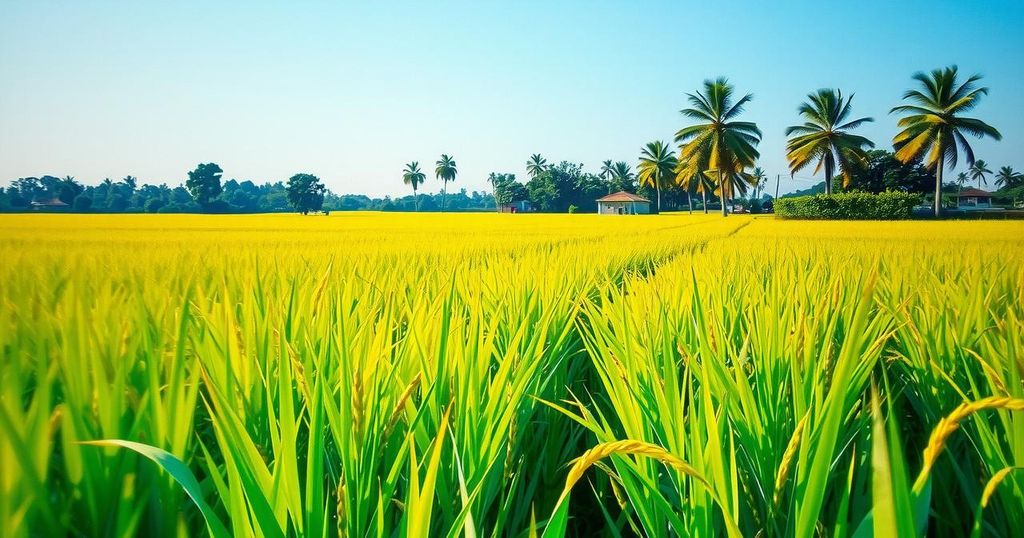Mozambique Achieves Record Rice Imports in 2024 Due to Agricultural Challenges
Mozambique recorded a historic high in rice imports in 2024, spending US$441 million, a 38.8% increase from 2023. Declining domestic agricultural production due to climatic factors and structural inadequacies led to increased reliance on foreign imports for food security. The report underscores the need for government investments in agriculture to enhance local production and reduce vulnerability to international price fluctuations.
In 2024, Mozambique reached a new high in rice imports, illustrating the increasing dependence on foreign countries to fulfill basic food requirements. According to the annual statistical report by the Bank of Mozambique (BdM), the country expended US$441 million on rice imports, reflecting a 38.8 percent rise from the previous year’s US$317.7 million. This surge is attributed to heightened domestic consumption alongside a decline in local production, influenced by structural and climatic challenges affecting the agricultural sector.
In 2023, Mozambique’s rice production plummeted by 34 percent to 161,800 tons from the prior year. Corresponding data from the National Institute of Statistics (INE) indicated that other food crops also suffered production declines, attributed to adverse climatic conditions such as floods and droughts, as well as a lack of essential infrastructural investments in irrigation, quality seeds, and technical guidance.
To compensate for the widespread deficiency in local food production, Mozambique has increasingly relied on imports, thereby exposing itself to fluctuating international food prices and posing a threat to food security, especially for the nation’s most impoverished citizens.
Additionally, maize production experienced a decline of 11 percent in 2023, registering 2.12 million tonnes, down from 2.38 million tonnes the previous year. This decline, although concerning, is not as alarming given that 2022 marked a significant increase of nearly 30 percent over 2021’s figures. Conversely, rice production has reached its lowest in five years.
Both sorghum and millet crops also faced substantial reductions, with sorghum decreasing by 15 percent to 139,553 tonnes and millet falling 32 percent to just 17,098 tonnes in 2023. Collectively, these shortfalls alongside the unprecedented imports fuel substantial worries in a country where agriculture employs the majority and constitutes over 20 percent of the GDP.
Despite worsening climatic conditions, Mozambique has the potential to enhance agricultural production through targeted government investments. A report from the Inclusive Growth in Mozambique development program highlights the sector’s challenges and emphasizes that strategic, long-term investment in climate resilience and structural improvement could diminish the need for costly foreign imports while fostering income, job creation, and food security for millions of Mozambicans, thereby strengthening the national economy.
In summary, the record levels of rice imports in Mozambique for 2024 reflect an alarming trend of increasing reliance on foreign support for basic food needs, primarily driven by significant declines in local agricultural production. Both adverse climatic conditions and insufficient investments in agricultural infrastructure are key contributors to this shortfall. While the situation poses challenges, it also presents an opportunity for the Mozambican government to invest strategically in the agricultural sector to bolster self-sufficiency, improve food security, and stimulate economic growth.
Original Source: macaonews.org




Post Comment